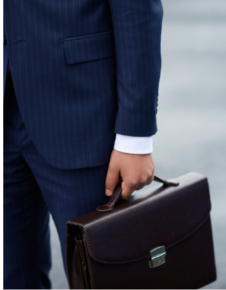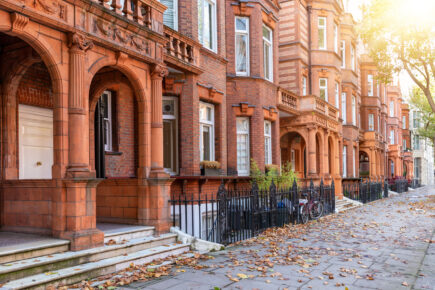2016 sees B P Collins LLP celebrate its 50th anniversary – a milestone marked by continuing successes and accolades across its practice groups and standout performances from its lawyers.
Throughout this year there will be a series of events and activities under the Made to Last banner, which encapsulates the depth of relationships and support that the firm has given its many corporate and private clients throughout the decades and generations.
As we begin this most important of years however, it’s also a time to reflect on the past and no-one is better placed to do so than founding partner Brian Collins.
In a special interview for Insight, he talks to senior partner Chris Hardy about the firm’s humble beginnings, its transformation from a one-man practice to its present size, and why the quality of service and the ability to communicate is as important today as it’s ever been.
Chris: Tell us what attracted you to the law in the first place.
Brian: My father was an architect and wanted me to follow in his footsteps, but I felt I didn’t have the necessary flair. In 1957, I left school at 18 with a handful of O Levels and two A Levels. Fortunately, it was relatively easy to join the legal profession at that stage, not least because the Law Society had just dropped the requirement to have Latin as a compulsory subject. I joined a small firm in The Strand and spent five years there serving my articles.
Chris: Is it true you didn’t get paid?
Brian: Yes, in those days it was not uncommon for parents to pay a premium to a firm to take someone on, as it was quite a commitment for the business. I believe I was the first person to be taken on by that firm without a payment being made, but in return it was agreed I wouldn’t be paid for the whole five years. Although my father had a good job, there was no “family” money available, so it must have been quite a drain on his resources to support me out of his taxed income for such a long period. The system effectively precluded people from poorer families entering the profession, which was very male dominated.
There was no formal training programme, I effectively picked it up as I went along, although I did also study at the College of Law at Lancaster Gate for both my law exams.
Chris: That’s certainly very different to how it is now. Trainees (formerly articled clerks) have a minimum salary and training is tightly regulated, so you know they are given the right amount of training and learning experience. When did you qualify?
Brian: I passed all my law exams at the first attempt and was admitted as a solicitor on 1 April 1963. I was invited to stay on with the firm in London as an assistant solicitor, but my family lived in Gerrards Cross and after five years, I had made up my mind that I didn’t want to commute.
Chris: Is that when you decided to start your own practice?
Brian: As soon as my articles had expired, I put an advert in the Law Society Gazette, hoping to be offered a job. It was a bit arrogant perhaps, but my father didn’t know many solicitors and I didn’t have any local connections, so it was the only thing I could do. I had a number of replies offering an interview, but David Hollands, a sole practitioner from Chalfont St Peter, was first off the mark. He offered to meet me in the pub and I wasn’t prepared to turn down a pint! David was a real character, he was very entrepreneurial, he smoked a pipe and drove a vintage car, and we hit it off. I agreed to join him for six months on the basis there would be no hard feelings if I then wanted to move on. He also agreed to pay me £100 more per annum than I was hoping to get as a newly qualified solicitor, so that clinched it!
Chris: Clearly you didn’t move on though?
Brian: The six months kept rolling forward and eventually it was just over three years, by which time I had become a salaried partner. It was principally residential conveyancing – those were the days of scale fees for property and probate. I could have continued to have a very comfortable living but I was impatient and ambitious and could see opportunities to expand into other areas of work.
Chris: So what happened next?
Brian: David and I adjourned back to the pub and he offered to sell the practice to me, we agreed a price, he gave me five years to pay it off and he left on 30 June 1966. The following day I changed the name of the firm from Hollands & Co to B P Collins & Co, which is where we began.
We revisit the interview with Chris and Brian in the next edition of Insight at the end of June when we learn more about how Brian's vision and modern approach helped transform B P Collins into the multi-discipline practice it is today.
















